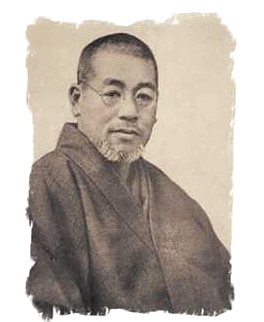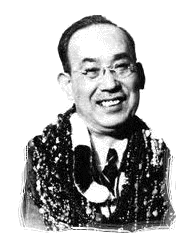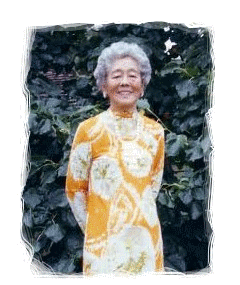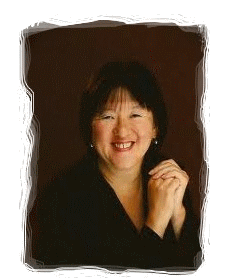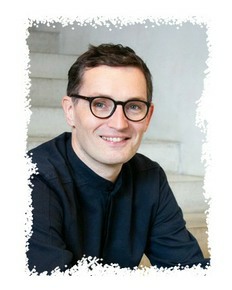|
Taken from an interview with Kristin Bonney
How does Reiki work?
Ah! There’s the mystery. There are many theories, mostly taken from other traditions. When treating, I feel myself filled with energy and simply allow it to pass through me into the person. Personally, I am happy to enjoy the mystery rather than getting into theoretical explanations, but there are plenty of these around. Clairvoyant people can see what is happening, but most of us just feel it in the hands.
Is it something I can practice on myself in-between sessions?
Self-treatment is a very important part of the practice, and becomes an integral part of one’s day. For many of us, we would no more forget it than forget to clean our teeth in the morning! A self-treatment might last anything from ten minutes to an hour. Half an hour is a good guideline, and this regular practice strengthens us and offers a much-needed space of quiet in our day.
Does Reiki involve any spiritual or religious beliefs?
No. I have worked with students from all kinds of religions and belief-systems. But perhaps one would be surprised to see an out-and-out materialist or a strong fundamentalist come to a class.
What kind of person would benefit from Reiki?
Perhaps anyone open to change, since all healing involves change. And most of us are surprisingly resistant to change, however much it hurts to hold on to old patterns! Sometimes people come to reiki when they have explored many other avenues in search of help.
How would someone learn to practice Reiki?
Look for a First Degree class with a master you feel comfortable with. There are many different systems and class forms, so it would be important to choose one that suits you. In my tradition (Usui Shiki Ryoho) the class is taught in four three to four hour sessions over three or four days. The student is taught how to treat him- or herself and others, hears the reiki story and participates in four short traditional rituals known as ‘initiations’ or ‘attunements’. After this, it is recommended that the student practices until Reiki becomes a way of life. Some then decide to explore further by enrolling in a Second Degree class.
If I want to find a reputable practitioner - what do I need to look for?
Find someone with whom you feel comfortable and can trust. How long have they practiced? What system did they learn? Do you feel they are sensitive, professional, confident?
Until recently, there have been no recognized ‘ minimum standards’ of practice, but this is changing, and you can find lists of practitioners on various registers. This doesn’t necessarily mean they are the best for you – so use your intuition. (see Notes below). The flashiest website doesn’t necessarily lead to the ‘best’ practitioner, and I suspect most people still find someone through personal recommendation
How long does it take to reach Master level and what do you have to do to get this far?
This varies greatly between different systems, in timing, cost and in apprenticeship or class form. In Usui Shiki Ryoho we recognize that it is better not to rush the process. Eastern traditions wisely have a far greater respect for time and practice that we do in the West, where we tend to want more, and more quickly. But each person has their own journey, and ultimately it is the commitment to practice and do one’s best to live by the Reiki Principles that lead towards mastery – not of Reiki, but of oneself.
I have suffered particularly badly from anxiety and stress - can Reiki help me?
Almost certainly, you would find great benefit from reiki. Imagine just making time to lie still for an hour or so, relaxing in the caring presence of another person, with no expectations. Better than a warm bath, for sure! And stress being the cause of so many other symptoms, you would surely notice other good effects.
Is there any scientific evidence that proves that Reiki works?
Most of the ‘evidence’ has been in the form of personal stories, but there has been some interesting work done in the USA using more formal methods. I would recommend Pamela Miles’ book, ‘Reiki, A Comprehensive Guide’ and website, www.reikimedecine.org.
Notes
-
There is now a national Reiki register held by the Complementary and Natural Healthcare Council (www.cnhc.org.uk/) Standards are based on the National Occupational Standards (NOS) and the core curriculum developed members of the Reiki Council, (www.reikicouncil.org.uk) the lead body for consultation as regards public practice in the UK. This body has also produced a short informational film about Reiki.
-
Each of Reiki Council's member organisations will have their own register of practitioners. The Reiki Association has an on-line register of practitioners and teachers in its Reiki Directory, while the Reiki Alliance (www.reikialliance.org) represents a global community of Usui Shiki Ryoho masters, and their lists include masters based in the UK.
-
The Reiki Resource book is currently being reviewed and can be ordered directly through the Reiki Council.
-
'Touch' is The Reiki Association’s quarterly magazine, now available by subscription.
Useful websites:
The Reiki Alliance: www.reikialliance.com
The basis of these questions and answers were taken from an article solicited by 'Simply Beautiful Magazine' in 2011. Please note that they were written from the viewpoint and experience of a Reiki Master of the Usui Shiki Ryoho tradition on which The Reiki Association was founded, and that there are many other Reiki systems with different perspectives.
Milly Cain, a Reiki Master and long standing member of TRA was asked the following question:
Q: I have received worrying emails about Reiki?
A: Everyone who uses the internet and has an email address is likely to receive a variety of unsolicited information about life on Earth and beyond!
Whilst we have some control over what arrives in our inbox we will also receive mail we didnt expect.
Several members have written about ''worrying'' email that they received about Reiki.
A recent email received spoke of a 'different' approach to becoming a Reiki Master with suggestions that some elements of 'training' for Reiki were unneccessary and possibly misleading. You yourself may have received emails such as this or seen information on the Internet that may have made you feel uncomfortable or felt very different from your own experience of Reiki.
The Reiki Association as a body, has always welcomed members from all forms of Reiki whilst honouring, as our core practice, the System of Usui Shiki Ryoho as defined by the Office of Grand Master. Holding this paradox of honouring a specific form whilst remaining open to and welcoming all reiki practises, has been an enriching and illuminating process. As members we share Reiki, our experiences and our journey with Reiki . Often the differences melt and the similarities are enjoyed.
It is not our place to hold any moral high ground as to which form of Reiki might be the 'better'.
Reiki has become more widely known in the world and a variety of forms have emerged over the last 25 years.
No one of us can 'own' Reiki. We hold Reiki in our lives and demonstrate Reiki in practice by how we live our lives.
We each have our own unique experience of how we come to Reiki and where we are going with it. We find our own path, our own way.
In our collective years of experience we have seen that the student is drawn to the right place at the right time and will find the Master or Teacher that is right for them.If we are comfortable in our individual Reiki practice we can try to embrace both similarities and differences in all forms of Reiki practice without feeling judgemental.
The electronic information highway is here to stay. For those practices based in oral tradition and personal presence between students and teachers, this may feel challenging. Reiki, universal energy, will guide the process.
Reiki will guide us, both student and Master, helping us to embrace differences without judgement or fears. The best way for one person may not be the best way for another. This is the case in so many areas of human experience.
Rather than feel disturbed by the influx of Internet articles we could use these occasions as opportunities to deepen and strengthen our understanding of how ''at home'' we are with our own Reiki practice.
Teachings come in many different forms!
Members who receive unsolicited emails about Reiki that cause confusion or discomfort are welcome to contact Tripuri Dunne for advice. Please email your concerns to memsec@reikiassociation.net.
< < Back
|
